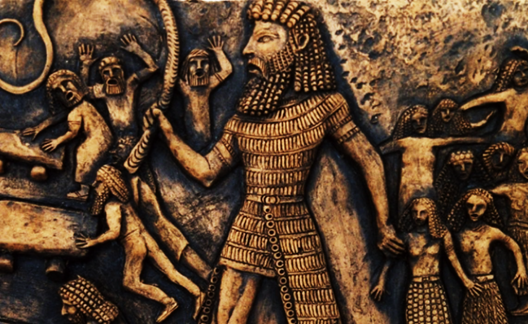Either Rewriting History, Editing History, or Reliving History
This article addresses what Charles Dickens wrote at the beginning of A Tale of Two Cities.
It was the best of times, it was the worst of times, it was the age of wisdom, it was the age of foolishness, it was the epoch of belief, it was the epoch of incredulity, it was the season of Light, it was the season of Darkness, it was the spring of hope, it was the winter of despair, we had everything before us, we had nothing before us, we were all going direct to Heaven, we were all going direct the other way – in short, the period was so far like the present period, that some of its noisiest authorities insisted on its being received, for good or for evil, in the superlative degree of comparison only.
Everyone is quite familiar with this initial paragraph. However, take note of the phrase where Dickens reflects upon history. He wrote that “the period was so far like the present period.” Essentially, he was saying the same thing that George Santayana wrote a half-century later in The Life of Reason, “Those who cannot remember the past are condemned to repeat it.”
My essay is a three-part illustration of the dilemma faced by history. The first example is Gone With the Wind, which Margaret Mitchell wrote in 1936. Mitchell had toyed with this title, Another Day, Bugles Sang True, Not in Our Stars, and Tote the Weary Load. Regardless of the title, it was a story of the old South, the antebellum South facing the Civil War. That old South faced a new world order.
Interestingly, Mitchell was from that former world order. She came from a wealthy, privileged white family in Georgia. Her grandfather fought for the Confederacy. Her novel faced the issue of what once was with an overlay of romance and love. While Gone With the Wind reflected the mindset of the white South, the novel concludes in the dying days of the Confederacy without addressing slavery. Slavery was the means used by many Southerners to become wealthy.
Mitchell was essentially rewriting the history of the South, including slavery. Interestingly, the movie, which came out in 1939, is ranked at the top of all movies. Adjusted to inflation, it made $3.44 billion. I wonder how many blacks went to see the movie. In the South, blacks couldn’t have gone to see Gone With the Wind or even eaten at a white-owned restaurant in the late 30s.

Nonetheless, the censorship board that evaluated issues of what is permissible to be included in movies discussed for months Rhett’s final words in the film. They were troubled by this line, “Frankly, my dear, I don’t give a damn.” The board would have preferred something less vulgar like, “Frankly, my dear, I don’t care.” What about whether racism is permissible.
David Reynolds, a British historian and Emeritus Professor of International History at Cambridge University, was on point with his analysis of Gone With the Wind. He was quite critical because it was rewriting history by perpetuating racist myths about blacks. “The white women are elegant, their menfolk are noble or at least dashing. And, in the background, the black slaves are mostly dutiful and content, clearly incapable of an independent existence.” He saw that the South was rewriting their history with Gone With the Wind and The Birth of a Nation.
The second example is of rewriting history that somebody already wrote. Harriet Beecher Stowe wrote Uncle Tom’s Cabin.
Uncle Tom’s Cabin was a novel about Uncle Tom. His claim to fame was that he was a slave that rescued Eva from drowning. She was a daughter of a slave owner. Eva was on a boat that was taking Tom to a slave auction in New Orleans. Eva tells her father to buy Tom. Essentially, Uncle Tom was a good, noble, and caring person.
However, this is where whites edit the storyline of Stowe’s novel, especially in the South. They create a mythical version of Uncle Tom’s Cabin. This time, Uncle Tom was a good-for-nothing slave, a polar opposite character in Stowe’s novel. Many writers, particularly in the South, created a new literary group called anti-Tom or plantation literature.
However, in 2021, we have TVs, and Laura Ingraham works for Fox News. She provided Trump a platform to rewrite the video history of January 6, 2021. Trump told his followers that he would walk with them down Pennsylvania Avenue to the Capitol. Nevertheless, he went back to the White House to watch on TV his supporters break into the Capitol while the Electoral College was reporting the results of the presidential election.
After hours of fighting and bloodshed, Trump’s attempted coup d'état was aborted. As the nation watched in shock and horror, he knew that he failed. Nonetheless, he was now trying to protect the image he created by telling his supporter to stop the Electoral College report. He wanted to edit all the videos of January 6. Trump’s mob weren’t bad people. They were really very good people.
This video is part of Ingraham’s interview with Trump.
"It was zero threat, right from the start, it was zero threat" -- Trump on the January 6 insurrection that left 5 dead, including a police officer pic.twitter.com/6YBho1bywM
— Aaron Rupar (@atrupar) March 26, 2021
These are Trump’s printed words. “They went in, they shouldn’t have done it. Some of them went in and they’re hugging and kissing the police and the guards, they had great relationships. A lot of the people were waved in, and then they walked in and they walked out.”
I don’t see any hugging and kissing of the rioters with the police.




Maybe, the mob was thinking about kissing.

They might hug this cop if there was room.
Trump will have a lot more editing of the history of the insurrection before he is successful. Gilgamesh said that we have immortality, but that immortality will be the result of being remembered.
While Trump rattles on with Ingraham and Fox News, various attorneys-general are working on indicting him. Trump will be remembered as the worst president ever.
Follow @mountain_and_me














